- Calls to this hotline are currently being directed to Within Health, Fay or Eating Disorder Solutions
- Representatives are standing by 24/7 to help answer your questions
- All calls are confidential and HIPAA compliant
- There is no obligation or cost to call
- Eating Disorder Hope does not receive any commissions or fees dependent upon which provider you select
- Additional treatment providers are located on our directory or samhsa.gov
Anorexia Current & Prior Research: Implications for Improved Treatment
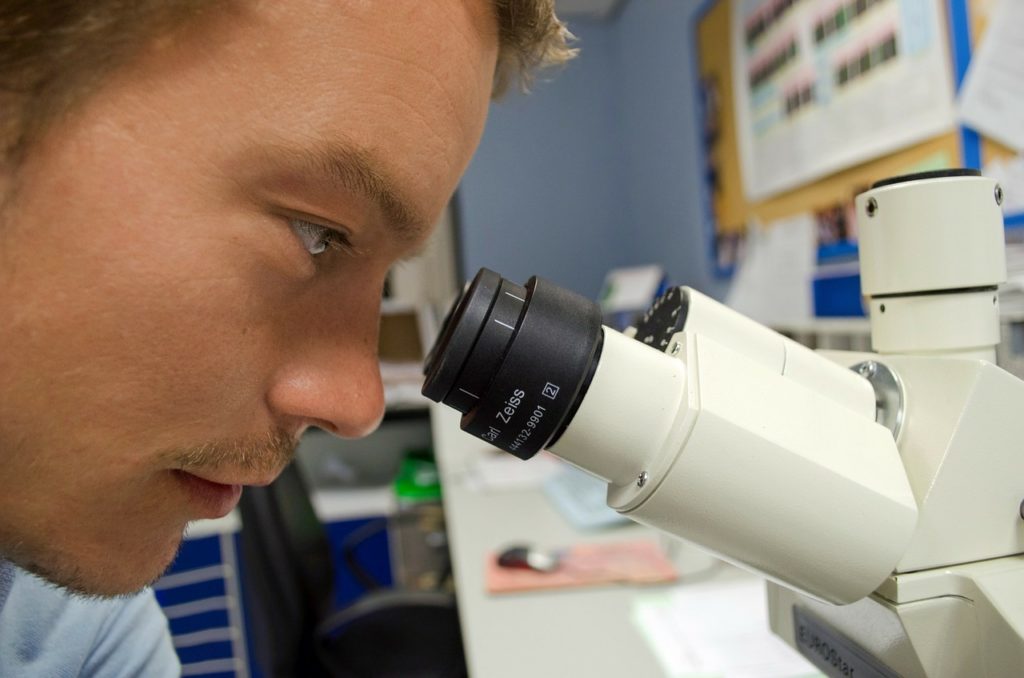
Dr. Walter Kaye is a preeminent expert in eating disorder research, and he was generous in allowing Jacquelyn Ekern of Eating Disorder Hope to conduct an interview and present it on Eating Disorder Hope’s Virtual Conference “Anorexia Hope & Healing in 2018” held on May 17, 2018. This is his interview “Anorexia Current & Prior Research: Implications for Improved Treatment.”
Jacquelyn: What is your role in activities as Director of the Eating Disorder Treatment Research Program at UC San Diego Health?
Dr. Kaye: Well, I’ve been here for roughly ten years and, when I came here, one of the things I wanted to do was to look at the models of eating disorder treatment and try to advance the field by coming up with new and improved treatment approaches.
We do several things here. We have a large clinical program, and we have a very large biologic research program.
We also do something I find relatively unique, which is, we are trying to marry what we’re learning about the brain and behavior with better treatment approaches, which I will get into later.
In terms of treatment, when I started this program, I had previously been involved in running treatment programs at the National Institute of Mental Health in Pittsburgh.
These programs have been frustrating and disappointing in the sense that the relapse rate of eating disorders is very high, yet, treatments are very expensive and long-term.
At that point, I was very intrigued about family-based treatment as a new model, which brings family members in as allies with the idea being that these are often very chronic, long-term disorders and that, if you put someone in inpatient when they are discharged, the family doesn’t understand the disorder.
As a result, they don’t know how to manage and interact and get their child to eat and maintain their weight after discharge. Because of this, family-based treatment was really an advance and step forward.
We were part of the consortium with Stanford and other Senators to do a multi-center study and family-based treatment to another family treatment that had more psychosocial aims.
This was a great way of training our staff and forming alliances with others in the field and bringing the family-based treatment to San Diego.
The other thing we want to do is to see if we could do this treatment in a less-expensive way.
To get families to participate in traditionally family-based treatment has been done in outpatient settings.
What we started here was a day treatment of the evening partial program here. We also made a family-based treatment as the predominant treatment here for adolescents and children with these disorders.
 Now, the program has really grown and we, actually, have separate programs for children, adolescents, and a separate program for adults.
Now, the program has really grown and we, actually, have separate programs for children, adolescents, and a separate program for adults.
The overarching goal of these programs is to deliver evidence-based treatment. If you’re going to provide evidence-based treatment, the title “evidence-based treatment” only applies if you follow the treatment the way it was designed and that was proven to be effective.
As such, we have set up a system that trains therapists and supervises them and continues to train them over time to deliver evidence-based kinds of treatments.
That can be a very expensive, laborious, and difficult thing to do but we’ve been able to do it successfully.
I think this has really fueled our growth because individuals and families that come here feel that they are getting a consistent treatment by informed therapists.
Jacquelyn: Absolutely! Now, you are doing research identifying genes that may contribute to the development of anorexia and bulimia nervosa, can you speak to that a little bit for us?
Dr. Kaye: Sure! I began my work in an era where there was a lot of technology being thrown at genetics, and there was the promise, and the hope, that we would be able to discover the genes that cause behavioral disorders.
Of course, we came from this from the perspective, at the time, that they were a single-gene disorder like sickle-cell anemia. We thought, if we discover the gene, we understand the disorder.
Unfortunately, behavioral disorders have turned out to be a lot more complicated than we thought they were going to be.
Now, it looks like there are many genes that contribute to each disorder, which has relatively small effects that may contribute to behavioral disorders.
It is probably going to take a lot longer to really understand the genetics of these disorders and find the genes and use those to develop more effective treatments.
I believe that the technology is there, it just isn’t going to happen continuously the way we’re hoping.
Jacquelyn: When you get disappointing results with studies, what do you and your team do?
Dr. Kaye: Typically, you continue to go down that avenue and just change course slightly. If you run into funding issues or something like that, you may have to abandon some research and go in a different direction.
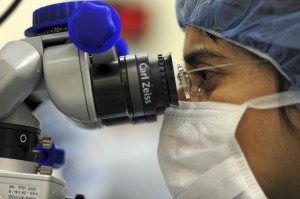
I think you look at the data and take a step back and say “gee, we didn’t get the results that we wanted to get, why is that? What were our assumptions? What was the reality of the situation?”
What we were discovering is that we could take lessons from other illnesses like Autism Spectrum Disorder or breast cancer.
In these disorders, we are learning that there are systems that are involved in Autism and that these systems may be very important for development at synapse formation.
In breast cancer, it may be systems that are very important in correcting DNA that becomes disturbed and that genetics plays a role in these disorders.
There are many ways to screw up these systems, and it may be that everybody with Autism or breast cancer may have their own unique illness, their own specific system that gets impaired with a cause that is unique to that person.
The ultimate lessons are that we need to look at eating disorders and say “what is the system that is involved in the brain that causes people to restrict eating or engage in binge/purge behaviors? What is the genetic architecture of those systems?”
In following these questions, we begin to tease it apart so we don’t throw out information or research but that, as we learn more about the biology of the brain and behavior, we come at the data from a more sophisticated, successful approach.
Jacquelyn: Now, you have won the National Institute of Mental Health Senior Scientist Award. When did that occur and what was that for?
Dr. Kaye: That is when I was working at Penn State University – Pittsburgh for 20 years, in the clinical program and doing research.
At that time, I was particularly focusing on research, and there were opportunities for grants at the National Institute of Mental Health.
The grant changed over time, as they have different options and grant portfolios and one was to get an award to support my salary so I could focus on full-time research.
Jacquelyn: So, research is absolutely your passion?
Dr. Kaye: Well, you know, the whole point of research is to apply what you find to human behavior and develop other treatments.
So, I’d say my real passion is using research to develop better treatment approaches, which is what I feel like we are doing here at UC San Diego now.
For example, one of the things that we have learned about people with eating disorders, and there is some controversy in the field about this, is the question of what the etiology is.
Many people in our culture diet, relatively few people develop anorexia nervosa.
You would think, if anorexia were purely psychosocial in nature, with the amount of dieting that goes on in this culture, it would be very common, but it isn’t.
It has even been evidenced that the incidence of anorexia nervosa hasn’t changed as much over time as we think.
Most people with anorexia will say, when you ask them who they were like as a child before they ever developed an eating disorder, is that, as a child, they tended to be achievement-oriented, they wanted to get all A’s, they were perfectionists, they were often worried about things, some were kind of obsessive.
Now, some were more impulsive and emotionally labile but, predominantly, people had one or more from this menu of perfectionist traits.

These traits are temperament traits, they aren’t an illness, and people don’t automatically have problems from having them.
Then, they tend to get into their teenage years, and they develop an eating disorder.
The thing that we’ve been very interested in is that those temperament traits seem to be exaggerated when people are ill, but, they persist after recovery and, even after recovery, people that have anorexia tend to be anxious, risk or harm avoidant, sometimes obsessive, continuing to be perfectionistic.
They end up recovering either completely or to a certain degree and these traits, actually, become advantages. They learn to use these in more successful ways and often do very well in life due to this.
Some may even say individuals with anorexia may have, in some ways, even unfair advantages. We will see people that have been very ill for a number of years recover and they’re doing terrific; they are at the top of their field.
So, these traits may predispose people to be very self-disciplined, pay attention to detail, achievement-oriented, work hard. They likely have more advantage in certain fields such as engineering, medicine, research, fields where these traits are rewarded.
As we are beginning to learn more about these traits, we are trying to use that in terms of our treatment, to have people with eating disorders and their families recognize these traits and to learn compensatory skills to manage these traits and use them in beneficial ways.
That is so hopeful and inspiring. We see it often with Eating Disorder Hope in the articles people send us and the perfectionism in particular, rather than trying to take the pendulum and swing it in the completely opposite direction, to find that middle ground where you can use that gift as a strength and then moderating where it is hindering you.
Jacquelyn: Often here at Eating Disorder Hope, we see perfection traits in the articles people send us and that perfectionism is a challenge for many folks who struggle with eating disorders. It seem that the perfectionism pendulum may need to swing both directions for individuals in ed recovery, to eventually find that middle ground where you can use that gift as a strength and then moderating where it is hindering you. This seems to be really crucial for recovery.
Dr. Kaye: Exactly. I work with very skilled researchers and can say that is what we are finding.
I often ask, “how would you use this in a more successful kind of ecology or use this in treatment?” I also ask, “how can we find strategies and therapeutic approaches in treatment that teach people to use these traits?
That is very encouraging. Now, I would really like to hear your take on the familiar phrase, “genetics load the gun, environment pulls the trigger” in regard to eating disorders.
You know, it is probably true and a good description of what happens.
People have these temperament traits, these perfection traits, and then, they develop eating disorders. Now, we don’t know what actually pulls the trigger, and it could be certain psychosocial factors that play a role such as stress, grief, or trauma.
It does often come to tease that out, however, because it is different for every individual what in their environment “pulls the trigger.”
Jacquelyn: Absolutely. I read one of your recent articles published in Clinical Psychology and Practice in January 2018. It was titled, ‘We Are Only at the Tip of the Iceberg: A Commentary on Higher Levels of Care for Anorexia Nervosa.” Can you tell us a bit about the study?
Dr. Kaye: Sure! Actually, the first author was Eunice Chen Lu, so she gets most of the credit for this, and it was a very nice article.
It, basically, describes that we aren’t “there” yet in terms of these disorders, we are only slowly beginning to understand the causes of eating disorders and develop other treatment approaches.
One of the problems in this field that I consider from a broader perspective is proving that one approach is useful because that is very hard to do.
When you are trying to provide treatment for people, it is not as if you withhold other kinds of treatments and just use one thing and see what happens to them in 3 years.
Nobody can do that.
You have to provide everything that you think is useful for that individual and there are often so many factors going on that it is hard to tease apart what may be making the difference.
Sometimes, even, people spontaneously recover, and treatment may not even make the difference.
There are a lot of problems such as this that we don’t really know quite how to solve at this point, and that can be frustrating.
 Another frustration, for example, is that we try to get comprehensive outcome assessments on people and, for whatever reason, people are discharged, it is often hard to get 100% participation.
Another frustration, for example, is that we try to get comprehensive outcome assessments on people and, for whatever reason, people are discharged, it is often hard to get 100% participation.
In fact, the fall-off rate is often very high. Therefore, we don’t actually know what happens to everyone after discharge.
This is frustrating because those people may be doing poorly but they may also be doing great, and we just don’t know.
With these frustrations, we are trying to develop more effective treatment approaches.
Jacquelyn: Would it be helpful to have Eating Disorder Hope, or other online communities, provide a touch-point to these people to interface with the therapist and nutritionist at periods of time over tens years or so?
Dr. Kaye: Maybe, yeah, that would be great!
We surely need new models and innovative thinking here because what we have been doing in the past doesn’t work.
So, if there are better ways to set up registries and follow-up and feed the information back, that would be terrific!
You know, there are other countries that have national registries and country-supported treatment.
That is harder for us to do in our country because there are so many different systems of insurance payments and treatment centers to get a comprehensive overview of what’s happening to people.
Of course, it would also have to be HIPAA compliant, and that is where we are making tremendous advancements in technology.
Jacquelyn: I was reviewing the Journal of Eating Disorders, December 2017 edition, and came across an article titled, “Outcomes of an Inpatient Re-feeding Protocol and Use with Anorexia Nervosa,” can you tell us a bit about the study and your conclusion?
Dr. Kaye: Yes, this was actually a nicely written article by Tammy National who is the head of our treatment program at Rady Children’s Hospital, where we were able to treat more medically and psychiatrically severe people needing inpatient care.
It focuses on the question of caloric needs and when to gain weight. You would think this is relatively straightforward, but it is harder to answer than you might think in terms of how many calories does an individual need to gain weight and how fast are they going to gain it.
From my perspective in the field and data that we have generated, women generally need about 30 calories per kilogram, per day to maintain their weight with a range of about 20 to 40 (this is women that don’t have an eating disorder). So, if you weigh 110 pounds, that’s 50 kilograms, times 30 that is about 1,500 calories a day with a range roughly from 1,000 to 2,000 to maintain your weight.
In other studies that we have also done with anorexia, one of the things that we have seen is that people that were at home ended up eating less than this amount of food, probably eating 10 or 20 calories per kilogram per day.
People seem to need a great deal of calories to gain weight with anorexia nervosa.
It has not been unusual for us to measure that it takes some people 70 to 100 calories per kilogram a day to gain weight, and that was gaining 2 or 3 pounds a week.
Additionally, people seemed to be very energy inefficient. Even though they were eating a large amount of calories, they weren’t gaining much weight.
In one of the studies, we did actually find that some people seem to get hypermetabolic and their temperature went up at night.
It’s not usual that individuals with anorexia will tell you that, when they are eating all of these calories, they wake up sweaty and hot in the middle of the night.
This heat is burning these calories instead of putting them on as tissue, and we don’t completely understand how that is the case.
The point is, people in recovery do need these large amounts of calories to gain weight.
 Of course, with this, there is the worry of these hypermetabolic symptoms causing problems, and that is something about which we need to be cautious.
Of course, with this, there is the worry of these hypermetabolic symptoms causing problems, and that is something about which we need to be cautious.
This is one of those areas we’re still trying to define. Of course, the other thing is that exercise impacts people’s weight gain.
Another study found that those individuals that need high amounts of calories to gain weight is because their bodies burn off a lot of calories when they exercise.
It comes to genetics a lot. There isn’t one answer that fits everybody, there is a range, and people have different caloric needs and different amounts of exercise for their bodies.
As such, trying to define the “right” prescription is not as simple as it might look.
Jacquelyn: What do you think will be the most critical research to explore in the next five years for anorexia nervosa?
Dr. Kaye: Well, let me be a little bit controversial.
We call these eating disorders, but I’m not sure that, and some don’t believe, that is a disturbance of appetite regulation.
Our research here and my own kind of bias is that there are systems in the brain that are very important for appetite regulation, the rewarding aspects of food, and the motivating aspects of food.
As we being to understand these systems better, it raises the question of whether or not there is a primary disturbance of appetite regulation in people with eating disorders.
Now that we have the brain imaging technology and other technologies, I think we can learn this.
Perhaps we will find that people have several disturbances, for example, maybe it isn’t body image alone but is a disturbance of body image coupled with a disturbance of the rewarding and motivating aspects of eating that lead to the development of an eating disorder.
So, it may not be one or the other. It may be multiple systems that are involved.
This is important, particularly with anorexia, because we don’t really have powerful treatments; there is no medication that is proven to reverse anorexia. Treatments like family-based treatments are major advances, but people still tend to have behavioral symptoms where our fix is to help them develop strategies just to eat and maintain their weight.
So, in general, the history of medicine is that it is hard to develop an effective treatment until you understand the underlying mechanisms.
As such, I think that the critical strategies in the next ten years will be those that begin to help us understand the mechanisms that contribute to eating disorders so that we can actually understand the underlying aspects and look at biology.
With this, we can develop more effective treatment approaches, whether they’re psychotherapies or medication.
Jacquelyn: What studies would you like our international community to support and refer participants? Are there any studies where we can focus their attention?

Dr. Kaye: Well, we are doing a number of studies here.
These studies tend to be two groups of people. One group are those ill with an eating disorder, and those tend to be people that are in our program or from the San Diego community, for practical reasons.
We also study people who are recovered from an eating disorder such as anorexia or bulimia, or both sometimes.
Those are studies where we are really trying to get people, nationally, to fly to San Diego to participate in but a lot of that depends on funding and what we are doing or studying at the time.
Jacquelyn: I would be happy to have Eating Disorder Hope dedicate some significant space to educate people about those opportunities! We will absolutely be in contact with how we can support you with that.
Dr. Kaye: Terrific, we’d appreciate it!
Jacquelyn: Now, please tell us, why is family involvement so crucial in the treatment of anorexia nervosa and what resources are there for families?
Dr. Kaye: That is a great question.
I believe one area in this field that is often overlooked is that of motivation and denial.
One of the consistent issues we see in an individual that has done this (anorexic behaviors) for a long time is they don’t see themselves as having a problem. As such, they aren’t motivated to engage in treatment and eat and gain weight.
That is one of the reasons we are so interested in looking at things like reward and emotion and neurobiology because it is not just a question of being motivated, it is also a question of not being able to be motivated to engage in treatment, especially if their life is at risk anyways.
This is a very critical issue on which we need to focus.
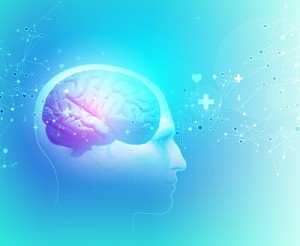
I am a psychiatrist and have been treating various kinds of psychiatric disorders for a long time.
Most of the time, people that come in are anxious or depressed, they feel miserable and don’t like feeling that way but, at the same time, they don’t see themselves as having a problem and aren’t motivated for treatment.
The family is often distraught, and they don’t want the child to die. They read things, and know there is a high death rate in this field.
As such, it is often more the family that is ready for treatment.
Therefore, getting the family involved by helping them incorporate strategies that will get their child into treatment and keep them in treatment is critical.
Does that make sense and answer the question?
Jacquelyn: That absolutely does. As a therapist and having recovered from an eating disorder myself, I know how crucial the family is, and there aren’t enough resources out there for the family.
Dr. Kaye: Exactly!
Jacquelyn: What would you suggest people seek, outside of therapy or treatment, in regard to resources or books?
Dr. Kaye: Jim Locke and Daniel LeGrance have written a number of books which are very good.
There are also organizations such as FEAST or NEDA that are dedicated to trying to educate people about eating disorders and better treatment approaches.
Sadly, there aren’t enough family-based treatments therapists all over the country. It is still an area where people are learning how to do it.
Not everybody has access to a family-based therapist who is skilled.
Jacquelyn: This kind of begs the question, to me, even internationally if we could provide education online for therapists in groups with experts to kind of disseminate family-based therapy techniques that would be useful.
Dr. Kaye: This is an interesting kind of therapy because you can learn an awful lot about doing it in a relatively short period of time. However, to become really proficient and deal with some of the very complicated questions that come up, particularly in severe illness, therapists need an extended period of training as well as supervision from experts.
Unfortunately, it takes a lot more training than anybody hoped for.
Jacquelyn: Yes, I can see that, and I know how sensitive families are in the treatment process, and we don’t want to do any harm, so it seems further exploration is needed.
I am so glad that you are an advocate for the family, though, I think that is a wonderful contribution.
Now, what do you see as the critical needs of the international eating disorder treatment community in 2018 and beyond?
Dr. Kaye: Well, I would suppose that internationally the same problems exist that do in the U.S.
There are a lot of people who have issues that don’t seek out treatment, maybe it isn’t available to them or isn’t affordable.
There may also be individuals that have received treatment that wasn’t particularly useful to them.
We are all still in the early stages of understanding these illnesses and developing treatments that are powerful and effective.
It is just going to take some time to do that, and I think the trajectory is uphill but these things don’t get accomplished in a few years.
Jacquelyn: Recently, at the Eating Disorders International Conference, I continually heard that, in the UK, there was an 18-month waiting list typically to get into treatment for eating disorders, which was so devastating to hear.
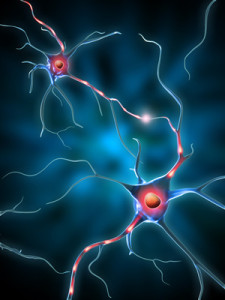
They were also expressing, Dr. Kaye, that the NHS and their provision of healthcare are in turmoil and that there is a lot of change happening.
Maybe some good can come out of that where we find ways to get people into treatment.
Dr. Kaye: Yes, the UK has really been on the cutting edge of developing new treatment approaches.
We work pretty closely with Ivan Eisler, who is, in some ways, the primary architect of family-based treatment.
He has been working with the system to try and improve it, but these are all just complicated things that take awhile.
Jacquelyn: Amen. My last question for you is, what is your most significant accomplishment as a psychiatrist who is dedicated to researching eating disorders and helping people?
Dr. Kaye: I believe we have finally crossed the frontier of beginning to understand what is going on in the brain and identifying systems that work in things like reward and decision-making, inhibitory control, and interception awareness, areas involved in eating disorders.
We are beginning to translate that into more effective treatment approaches and developing more outcomes tools so we have gone farther than I ever thought we would in my lifetime in terms of understanding how the brain works and developing more effective treatment approaches.
Of course, the other thing is that the field of eating disorders has grown enormously and we are now attracting a lot of competent clinical clinicians and scientists into the field who are interested in doing this and developing this approach, really making a difference in terms of treatment and outcome for others.
Jacquelyn: Well, Dr. Kaye, thank you so much for your time, we really appreciate your involvement.
Source:
Virtual Presentation by Dr. Walter Kaye in the May 17, 2018, Eating Disorder Hope Online Conference II: Anorexia Hope & Healing in 2018.
Please view the press release Here.
Author:
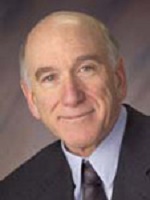
Dr. Walter Kaye was recruited to the UC San Diego faculty from the University of Pittsburgh School of Medicine, where he was research director of the eating disorder program, and where he received an NIMH senior scientist award.
Dr. Kaye’s current research is focused on exploring the relationship between brain and behavior using brain imaging and genetics, and developing and applying new treatments for anorexia and bulimia nervosa. He is the principal investigator for an international, multi-site collaboration on the genetics of anorexia and bulimia nervosa. He has an international reputation in the field of eating disorders and is the author of more than 300 articles and publications. He attended Ohio State Medical School, trained in neurology at the University of Southern California and trained in psychiatry at the University of California, Los Angeles. Dr. Kaye was then a fellow and research physician at the National Institute of Mental Health for seven years where he conducted research on appetite regulation, behavior, and treatment for disorders.
As Director of the University of California, San Diego Eating Disorder Treatment and Research Program, Dr. Kaye and his clinical team are treating anorexia nervosa and other eating disorders with an innovative, intensive program that approaches the problem on multiple levels, including medical, psychological, psycho-educational and counseling of the family as key support group.
 About the Transcript Editor: Margot Rittenhouse is a therapist who is passionate about providing mental health support to all in need and has worked with clients with substance abuse issues, eating disorders, domestic violence victims, and offenders, and severely mentally ill youth.
About the Transcript Editor: Margot Rittenhouse is a therapist who is passionate about providing mental health support to all in need and has worked with clients with substance abuse issues, eating disorders, domestic violence victims, and offenders, and severely mentally ill youth.
As a freelance writer for Eating Disorder and Addiction Hope and a mentor with MentorConnect, Margot is a passionate eating disorder advocate, committed to de-stigmatizing these illnesses while showing support for those struggling through mentoring, writing, and volunteering. Margot has a Master’s of Science in Clinical Mental Health Counseling from Johns Hopkins University.
The opinions and views of our guest contributors are shared to provide a broad perspective of eating disorders. These are not necessarily the views of Eating Disorder Hope, but an effort to offer a discussion of various issues by different concerned individuals.
We at Eating Disorder Hope understand that eating disorders result from a combination of environmental and genetic factors. If you or a loved one are suffering from an eating disorder, please know that there is hope for you, and seek immediate professional help.
Published on August 28, 2018.
Reviewed & Approved on August 28, 2018, by Jacquelyn Ekern MS, LPC
Published on EatingDisorderHope.com

The EatingDisorderHope.com editorial team comprises experienced writers, editors, and medical reviewers specializing in eating disorders, treatment, and mental and behavioral health.

